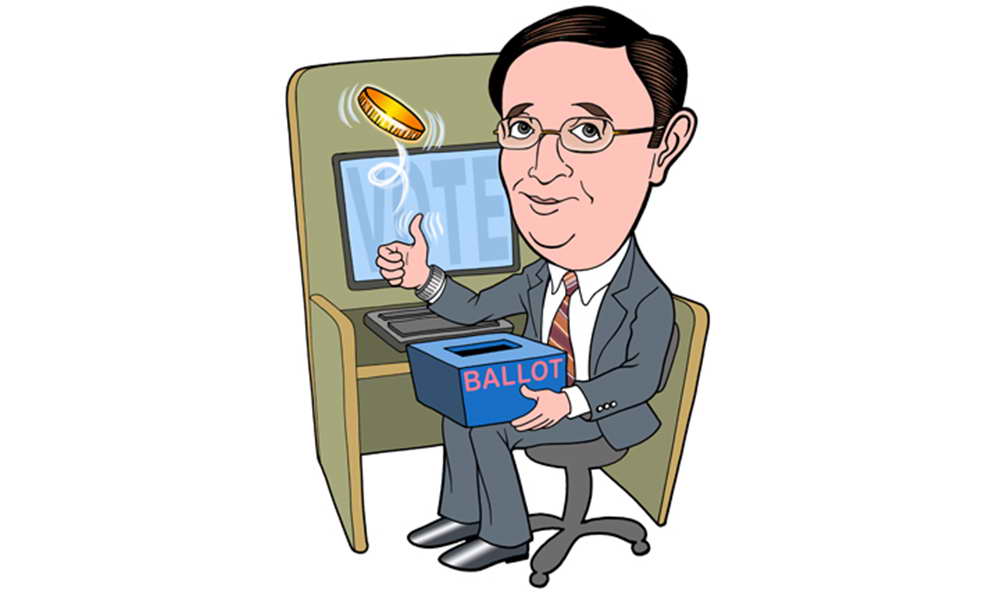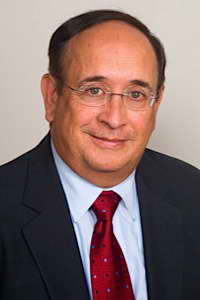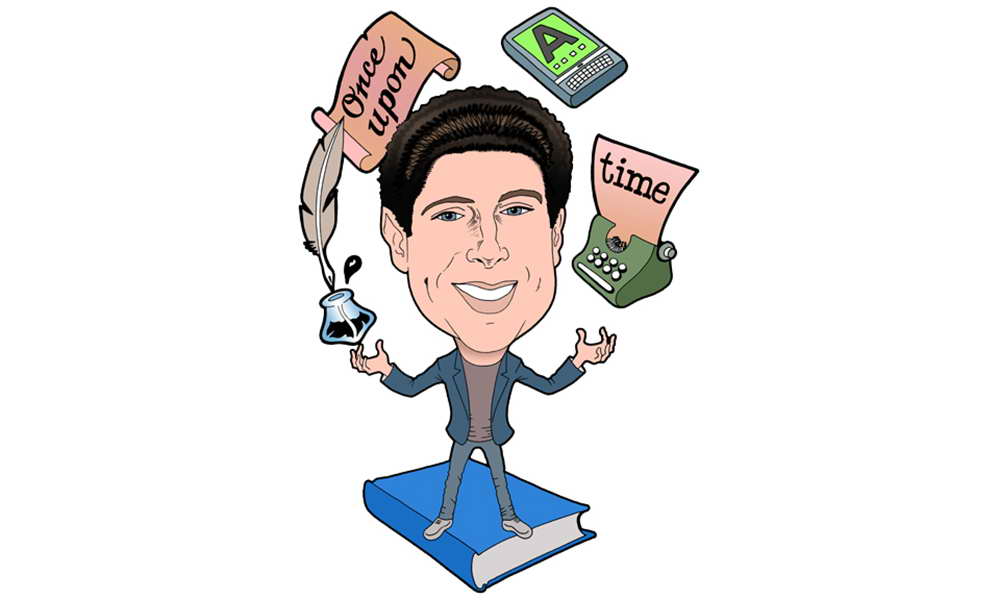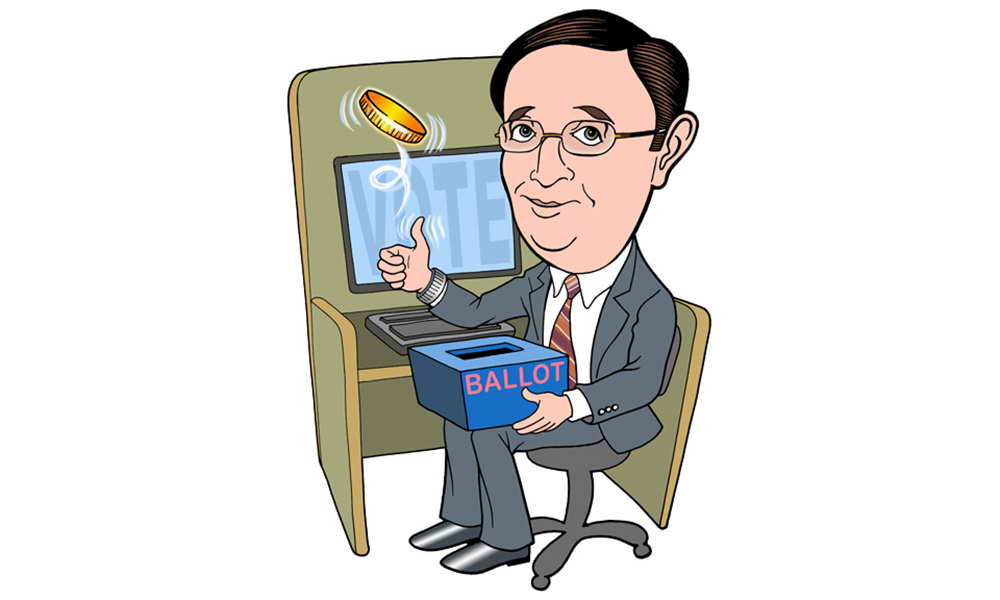By John Sparks
Jay DeDapper is a veteran television political reporter who has covered New York politics for more than a decade. In an interview with the Marist Poll’s John Sparks, DeDapper considers the matchup between New York City Mayor Mike Bloomberg and Democratic challenger Bill Thompson, and he discusses the impact of the $36 million the mayor has spent on his re-election campaign.
John Sparks
Jay, back in July, 51% of registered voters in New York City told The Marist Poll it was time to oust Mayor Michael Bloomberg from office and elect someone else. Now in that same poll, Bloomberg led Bill Thompson 48% to 35%. Do you sense that, as we get closer to the general election, that the Mayor’s pulling away and widening his lead?
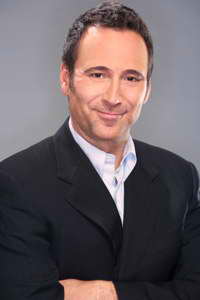
Jay DeDapper
I think there’s a limit to how much of a lead that he can get, even though he’s not a Republican, a registered Republican anymore. He’s not registered in any party. He’s created his own party to run, and he’s running on the independent line. I think that in a city that this is overwhelmingly Democratic, there is a limit to how many votes anybody can get that’s not on the Democratic line. That being said, he is widely seen, and the Marist Poll has shown this, previous Marist Polls have shown this, he’s widely seen to be politically independent and not really a Democrat or a Republican, and I think that appeals to a lot of people. So, I think his wide lead that he has now, and it is sizeable, I don’t think it’s going to grow much more. I think that there is a limit to how wide a lead that he can get in this race.
John Sparks
Now you mentioned he’s an independent. He’s also independently wealthy. He spent a reported $36 million on getting re-elected. Is it the money that makes this an insurmountable race for Bill Thompson?
Jay DeDapper
Well, money is always important and he spent — Mike Bloomberg spent $70 some odd million for the first time around. He spent $80 some odd million last time. There’s been talk that he’d spend $100 million by the time all the final checks are cut in this election, and that’s a huge disadvantage for Bill Thompson. Bill Thompson is participating in the public finance system in New York City, which is pretty progressive. It’s one of the most advanced in the country, but it doesn’t account for people who spend all of their own money, and there’s kind of no way to account for that under the law right now. So, it’s a huge disadvantage for Bill Thompson. But, to say that it’s only money, I think misses a point, and that is that there have been lots of candidates with a lot of money that have lost races. In fact, until Mike Bloomberg came along, the rule was you could spend — that super rich people could spend all the money they wanted and didn’t have a very good chance of winning election, all other things being equal. All other things are not equal in this case. Bill Thompson has not been an aggressive, an assertive candidate. He has had fewer public events, campaign events, than Mike Bloomberg, and if you’re the guy who is the underdog in the money race, then you’ve got to out-hustle the guy who’s got all the money. Bill Thompson isn’t out-hustling anybody right now.
John Sparks
So, what would it take for Thompson to win in November?
Jay DeDapper
He would have to become a different candidate. New York … I think New Yorkers, and you look back at the mayor’s races and the mayors that have been elected in the past, New York has a long history of electing characters. There’s, of course, Fiorello La Guardia. There was Ed Koch. There was Rudy Giuliani. Lindsay was in his own way a character. And, in between these characters, there have often been kind of quiet technocratic kind of people. Abe Beame was one. You could argue that Dave Dinkins was. He certainly wasn’t much of a character. He was historic, but he wasn’t much of a character. Mike Bloomberg has turned into a character. As much as he was kind of a colorless billionaire when he first ran, he’s turned into a bit of a character, a little bit a hottie [sic]. The Marist Poll has shown over the years that people don’t really like his attitude. They don’t think he relates to them or that he understands their concerns, but at the end of the day, he’s got a character, and they think he does a pretty good job. Bill Thompson is not a character. He is as colorless as you can get, and he hasn’t demonstrated any knack for becoming a character in people’s minds. In the very short period between now and election day, Bill Thompson would have to become a different person. That maybe is something he can do. Candidates have done that in the past, but he’d have to become a different person.
John Sparks
I was going to follow-up and ask–does he really have enough time to accomplish that?
Jay DeDapper
I think maybe the way I’d like to answer that is: Could a candidate in this amount of time accomplish what has to be accomplished? And, I think in the hypothetical, yes. Bill Thompson is going to have to go from zero to 60 tomorrow to be able to pull this off.
John Sparks
I’m curious about something else. Is Governor Paterson hurting Bill Thompson’s chances to be elected?
Jay DeDapper
I don’t think there’s any evidence of that. Paterson has plenty of his own problems, and that’s a whole other story. He’s gotten tremendously high negatives and a real, real problem with trying to get re-elected next year. But, I don’t think there’s any link in voters’ minds between Bill Thompson and David Paterson. They haven’t appeared together. They aren’t particularly close. Certainly, David Paterson’s not going to come and campaign for Bill Thompson, because Bill Thompson probably doesn’t want David Paterson to come and campaign for him. So, I don’t think that’s his problem. I mean Bill Thompson is not tainted by the leading Democrat in the state having low poll numbers. Bill Thompson is tainted by the fact that he simply is not running a campaign so far that has energy, ideas, attitude, assertiveness, aggressiveness, fire in the belly. There’s no fire in the belly.
John Sparks
Hindsight’s 20/20. Did Anthony Weiner make a mistake by dropping out?
Jay DeDapper
That’s a hard question. I mean, I think most people, most political analysts, myself included, believe that Anthony Weiner had a much better shot at winning — at beating Mike Bloomberg than Bill Thompson did. But, could he have beaten him? I don’t know, and Anthony Weiner in a purely political calculation, I think, looked at the map and said, “Look, I can run again in four years, and I will have been out there in two different cycles. I will have a lot of name recognition. I will be able to continue to raise issues and get free media and talk, and Mike Bloomberg won’t be running again in four years, and I won’t have to face his $80 million or whatever it’s going to be.” I think that Weiner, I’m sure, thinks in his own mind that he made the right choice because he’s a young guy, and he’s looking at the long run. He wasn’t looking at the short-term advantage. It would’ve been a tough race. It would’ve been … I think it would be a much competitive race if it was Anthony Weiner versus Mike Bloomberg than it is shaping up to be with Bill Thompson versus Mike Bloomberg.
John Sparks
You addressed what Bill Thompson would have to do in order to prevail in November, but I want to ask you: What must Mike Bloomberg do to hold onto his lead and to win in November?
Jay DeDapper
Bloomberg has real vulnerabilities, and The Marist Poll, this one and previous ones have pointed it out, and I’ve alluded to at least one of them, people, New Yorkers, the average New Yorker doesn’t think that he understands them nor is particularly concerned about what affects them. He is seen as a fairly aloof kind of sarcastic, not necessarily very nice rich guy, but he’s also seen as someone who is effective. And, in this case and in this economy, effectiveness seems to trump likability, at least so far, at least according to the polls. He has to work on the likability thing though because the danger is that he is seen as even more arrogant than he’s already seen if he simply goes forward assuming that he is going to win because he’s the right guy for the right time, and he’s got the track record to do it. So, I think you are going to see that. I think you are going to see the campaign working on trying to make Mike Bloomberg a little less of the out-of-touch billionaire and a little more of the I may not feel your pain, but at least I understand it billionaire.
John Sparks
Jay, do you think there’s any lingering resentment toward Bloomberg over the third term?
Jay DeDapper
I think that if you polled people, and you asked them that question specifically, and the further away we get it from it, it probably diminishes, but there has always been a lot of lingering resentment, at least in the polls that I’ve seen since this — since the term limits went through. But even at the time that the term limit debate was at its hottest, and the vast majority of New Yorkers said, “We don’t think the term limits should be overturned,” when those same voters were asked: “Well do you think Mike Bloomberg deserves a third term?” almost the same majority who were opposed to overturning term limits said: “Well, yeah, we think Mike Bloomberg should get a chance at a third term.” So, there’s a contradiction in voters’ minds, and I don’t think this has hurt him. I don’t think that whatever lingering resentment there is, I don’t think it’s enough to drive his supporters into the arms of Bill Thompson right now, and Bill hasn’t done a particularly effective job of stoking that resentment. It’s not an issue we’ve heard very much about in the last three months, and if you can’t make that an issue during the slow summer months, the dog days of August, you’re not going to make it an issue in October I don’t think.
John Sparks
I would think in the short time between the primary and the general that he’s going to really have to mount up an attack on the mayor. Having said that, do you think that there’s any chance in that short period of time that the mayor will stumble?
Jay DeDapper
There is. The mayor has shown over his eight years in office a tin ear to the perceptions of him. One of the most egregious cases was when a reporter in a wheelchair in the front row of a news conference inadvertently, or it was thought, had inadvertently played back a little piece of his tape recorder and it sounded like — it was a noise that interrupted the on-going press conference. And, the mayor castigated him in terms that were just nasty. It turned out it wasn’t even this guy’s tape recorder, and it took the mayor awhile to apologize. That kind of thing, and it got some attention in the press, that kind of thing in the heat and the glare of an election battle in the really hot campaigning over the last three or four weeks of campaigning, a talented opponent could take that and really hurt the mayor with it, with that kind of thing. The mayor is capable of that kind of gaffe. He’s demonstrated it repeatedly, and he is certain enough of his own success that his closest advisors are not going to keep him — be able to keep him from making a gaffe like that if it’s going to happen. The question would be: If a gaffe like that happens, would Bill Thompson be able to take advantage of it? That’s the bigger question to me than will the mayor make a gaffe.
John Sparks
Do you think that the Democrats could’ve fielded a more formidable opponent?
Jay DeDapper
Yes. Anthony Weiner, the polls showed repeatedly, would’ve been a more formidable opponent, and clearly, here’s a guy who knows how to get free media. He learned at the feet of Chuck Schumer, the king of free media. He knows how to get attention. He knows how to throw a punch. He knows how to appeal to the resentment about the term limits. He knows how to appeal to the anger there is, especially among ethnic blue-collar workers about the state of the economy and playing outer borough against Manhattan. He knows how do that, and that’s how you’re going to win. That’s how you’re going to beat Mike Bloomberg. Not that it would be an easy thing to do, but he would’ve been a formidable candidate. He was the only name that was out there mentioned that was serious. People talked about Bill Clinton running or something like that. I mean, yeah, Bill Clinton probably would’ve been a formidable candidate, but in terms of the realistic possible candidates, they could’ve fielded someone better, and his name is Anthony Weiner.
John Sparks
Jay, it’s always interesting to talk about your observations. You’ve covered New York politics for well beyond a decade. Anything else that you’d like to comment on the mayor’s race?
Jay DeDapper
I think what’s probably most interesting is this notion, and I’ve alluded to it, but this notion of effectiveness versus likability, and Rudy Giuliani, to some degree, succeeded in the same way. I remember in 1997, we went out to an African American middle class neighborhood in Queens, St. Albans, after Rudy Giuliani was re-elected overwhelmingly. Rudy Giuliani had had a terrible relationship with the African American community from … really from 1989 on … but from 1993 his election on … terrible relationship. He … I don’t recall if he came very close to winning, or he did win in St. Albans. And, when we talked to people on the street: why? They all said they didn’t like him, but crime was down. The streets were safer. Things were better. And, I think, at the end of the day, that voters, as much as we talk about how much voters vote just about who they like, who would they most like in their living room, when you’re talking about incumbency, effectiveness trumps likability, and I think there’s case-after-case of that, at least in New York City, where that is true. And, Mike Bloomberg is not very well liked, but he is well respected, and that, in this year with this economy, with the troubles facing the city, is an advantage that will be very difficult for Bill Thompson to overcome.
Related Stories:
9/21: Bloomberg Leads Thompson 50% to 39%
9/21: Bloomberg Approval Rating Steady


